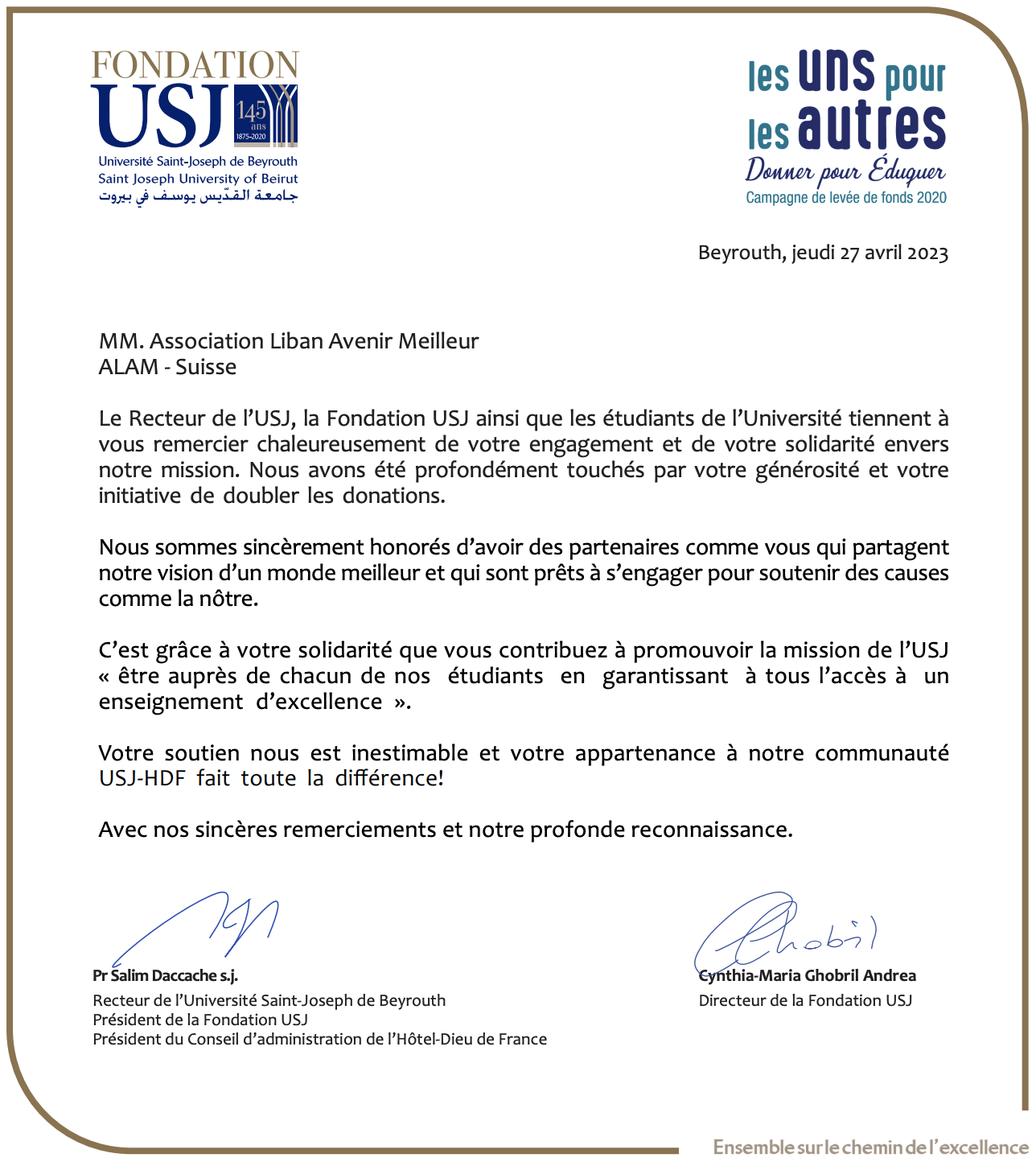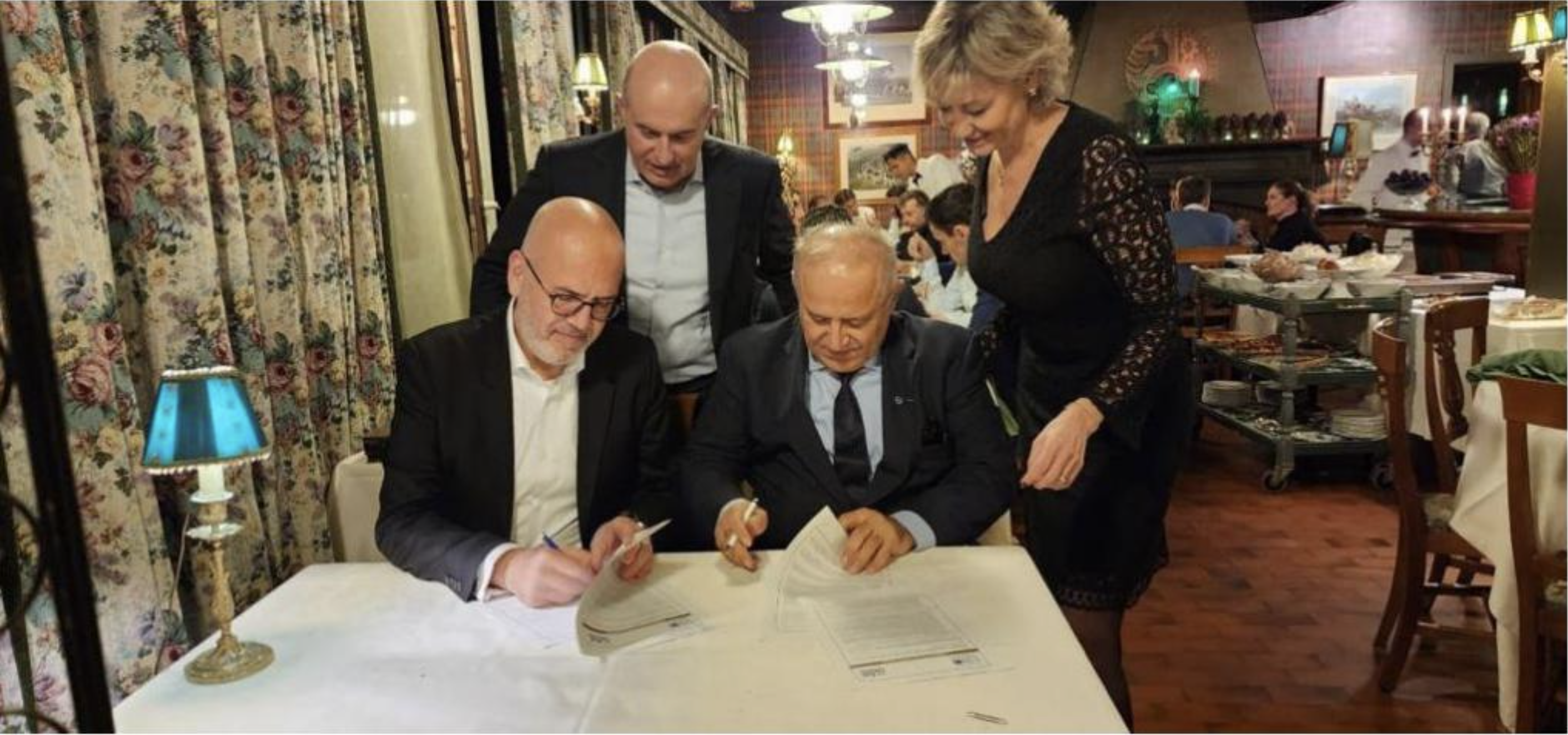During the last few years, the economic and financial crisis in Lebanon has become more severe. This crisis, of exceptional magnitude, has been fueled by many unfortunate events, such as the COVID-19 pandemic and the double explosion in the port of Beirut in the summer of 2020. The country’s situation has quickly become alarming and, in the face of the government’s unpunished corruption, nothing seems to be turning the situation around or even halting its free fall.
In all this, higher education, once a source of pride for the country, has taken a big hit. Apart from the Lebanese University which is the only government-funded university, universities and higher education institutions in Lebanon are private institutions that do not receive any support from the state. They draw their resources mainly from tuition fees and donations. Among them, Saint Joseph University of Beirut (USJ), one of the largest and oldest universities in Lebanon since it was founded by the Jesuit Fathers in 1875, has faced considerable challenges.
Faced with an unprecedented crisis and in a context of hyperinflation and frozen bank accounts, students could no longer afford the cost of higher education. In a country where public transportation is almost non-existent, the costs borne by students are not limited to tuition fees, but also extend to transportation and housing costs near the university. Soaring fossil fuel prices made commuting to university unaffordable. This left students in an insolvent situation and unable to pay tuition fees or cover the costs of living as a student in Lebanon.
In turn, the universities were losing resources and had serious problems maintaining their institutions and paying professors.
Despite these constraints, and unlike many higher education institutions in Lebanon, USJ did not seek to increase tuition fees or require payment of fees in dollars. To mitigate the crisis, the university has tried online education to reduce the cost of education for all, but this has not been evident in the long run due to the energy crisis the country is suffering from and the resulting prolonged power cuts.
From Switzerland, ALAM supports Lebanon and works to alleviate the suffering of the Lebanese and to give them hope for a better future. For ALAM, education is one of the main pillars for the long-term recovery of the country. The association has been able to provide schooling to more than 44,000 Lebanese children to date and has recently signed a memorandum of understanding with the USJ Foundation to continue its mission and allow it to fund as many higher education students as possible. To this end, for every donation sent to the USJ Foundation via ALAM, the association has undertaken to double the amount.

Apart from the educational cause, ALAM’s actions concern the humanitarian cause, health, sustainable development and the environment in Lebanon. ALAM remains by the side of all Lebanese people during this difficult period and accentuates its actions in favor of a better Lebanon, a fairer Lebanon, a welcoming and attractive Lebanon for the diaspora and the whole world.
ALAM is a Swiss non-profit association registered under Swiss law (# 080.124.578) and is tax-exempt.
Donations made to ALAM may be treated as tax-deductible charitable donations to the extent permitted by law.


